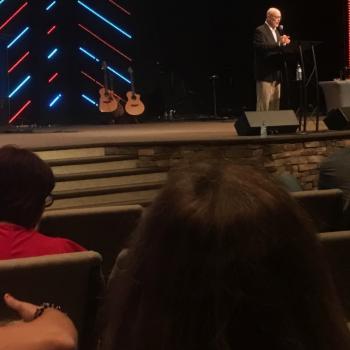In February I spoke at Regent University’s annual Reagan Symposium. This year’s theme was religion and presidential rhetoric, and C-SPAN has posted video of the event, with lectures by others including historians Daniel Dreisbach, Richard Gamble, Paul Kengor, and Gary Scott Smith.
In my lecture, titled “Great Pillars of Human Happiness”: How Religion Has Framed American National Experience,” I consider the ever-present role of religion in the rhetoric of the founding era, from Patrick Henry’s “Liberty or Death” speech to Thomas Jefferson’s first inaugural.
One idea I explore here – and will do so more extensively in my chapter for the conference volume – is that we may have exaggerated the role of providentialist rhetoric among the founders. Yes, leaders from Washington to Madison suggested that Providence assisted in the creation of the United States, but when religion appears in the founders’ rhetoric they are commonly referring simply to religious practice, outside of the state. I understand our fascination with civil religion (or what I called “civil spirituality” in God of Liberty), but we must also note that when the founders mentioned religion, they were often talking about the churches’ practices of worship, service, and education, which they considered vital to the health of the republic.
Washington famously called religion and morality “great pillars of human happiness” in the 1796 Farewell Address, clearly understanding congregations as what Peter Berger and the late Richard John Neuhaus called “mediating institutions” that stood between the state and the individual.
Check out my lecture here. My talk is the first one of the segment, and lasts about 20 minutes. It is worth just seeing the introduction, in which my former Clemson professor Charles Dunn, now of Regent’s School of Government, has a little fun at my expense! Dunn was the host of the event, which was absolutely first-rate.
















